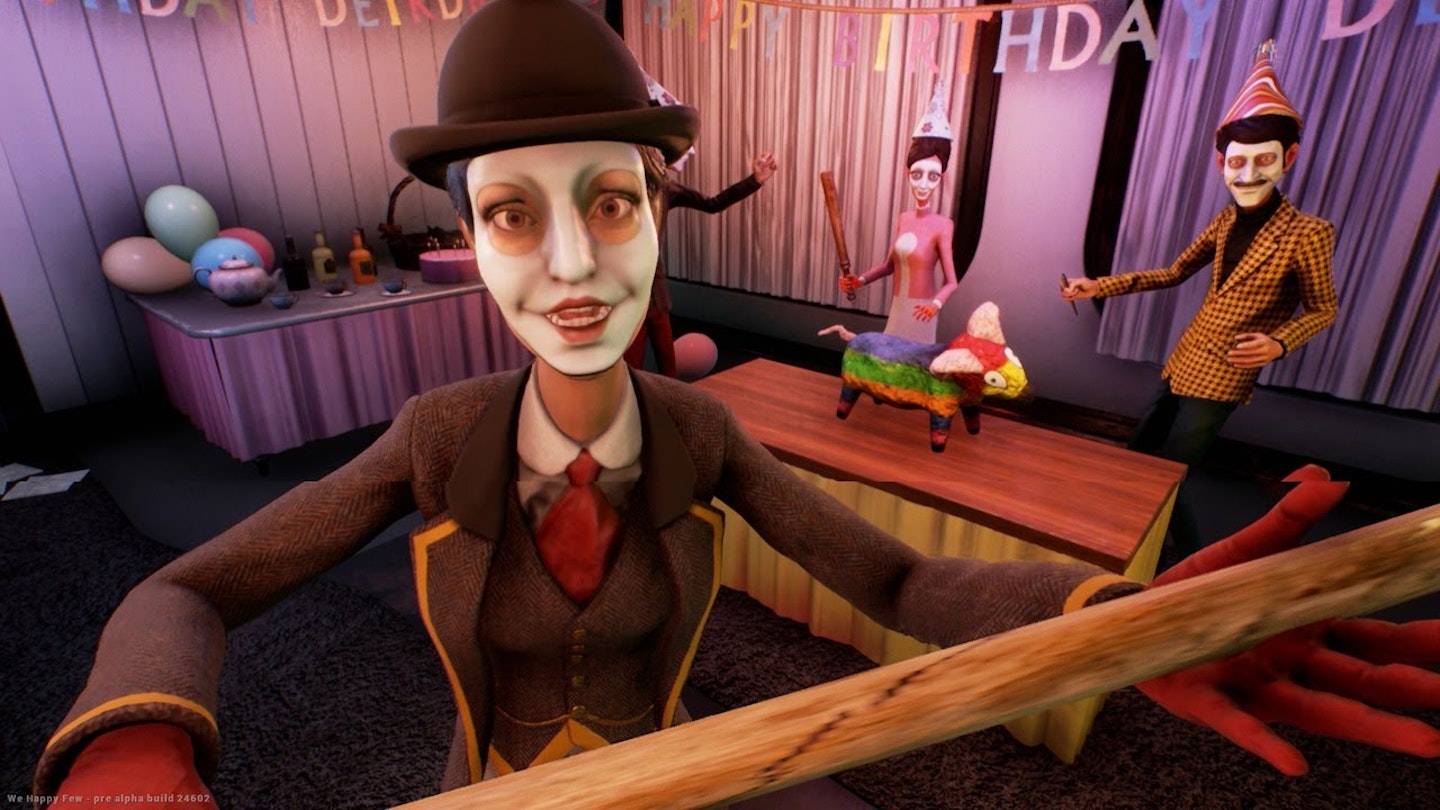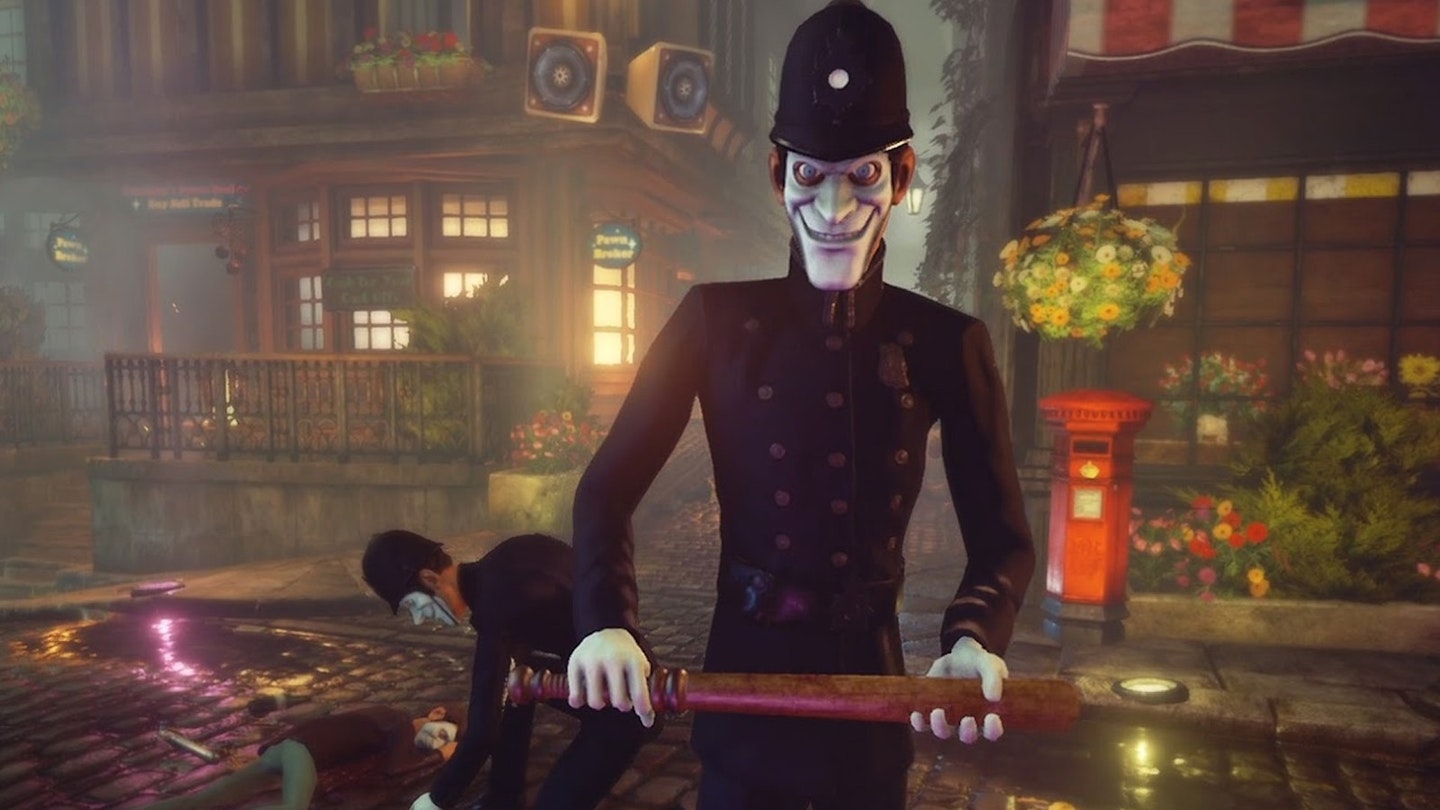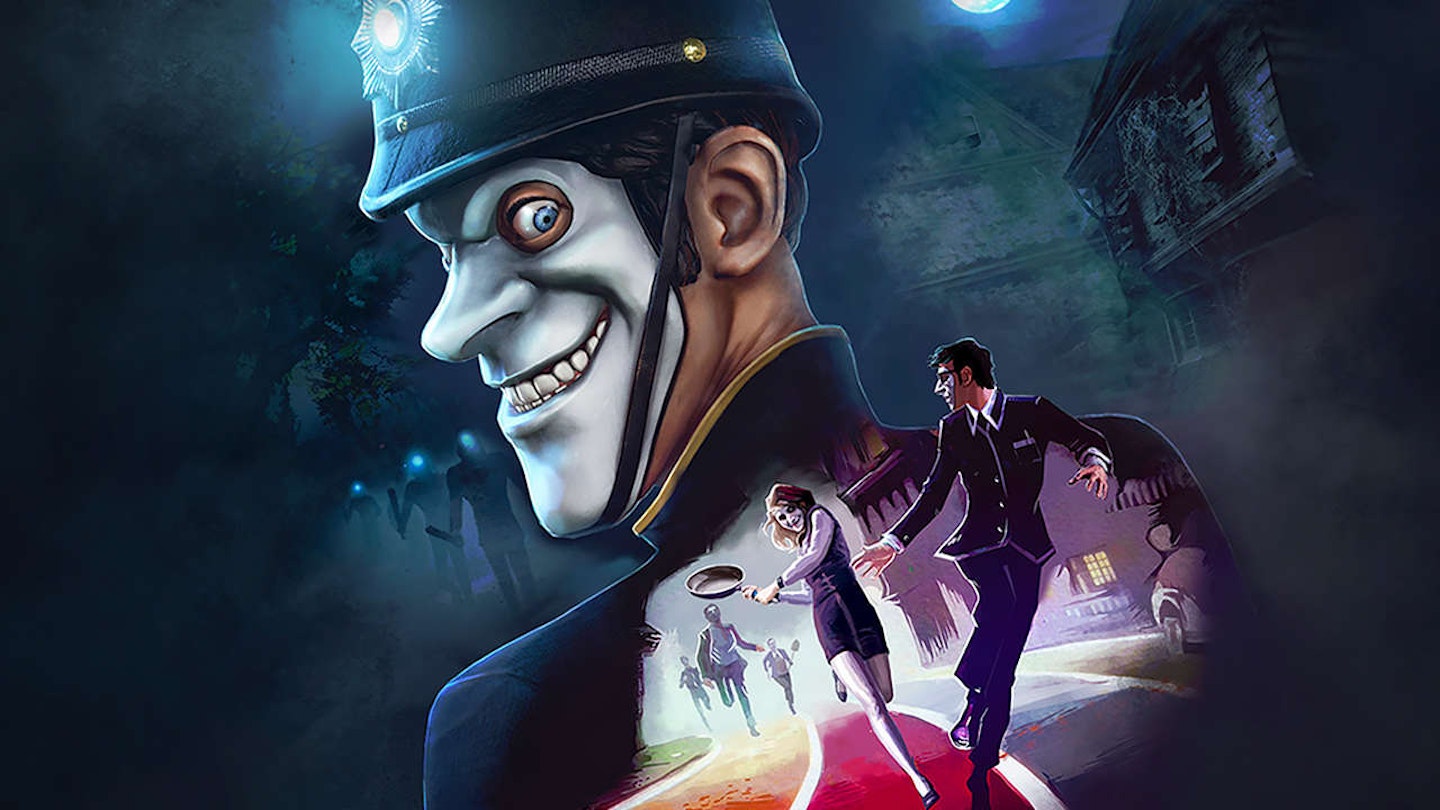Despite being set in an alternate 1960s where World War II ended very differently, We Happy Few could be just as damning an examination of what a post-Brexit Britain might look like. Bereft of allies and with the nation in ruin, half the populace live in squalor and decry the horrifying state of affairs, while the rest wear forced smiles and take mind-warping drugs to convince themselves everything is actually OK. In reality, they're eating rats for dinner.

You'll explore this dystopian world through the eyes of a trio of protagonists; Arthur, Sally, and Ollie. Arthur is arguably the main character, and certainly the recipient of most of the game's play time, who falls out of favour with polite society when he stops taking the mandatory hallucinogenic, Joy. Remembering his lost brother, he sets out to escape the Orwellian nightmare of Wellington Wells in hopes of reuniting. Sally, in contrast, is fully entrenched with the elite, but working her own agenda within the oppressive society, while Ollie is an ex-soldier who remembers how things used to be.
The three cross paths through the course of their chapters, which must be played in order, leading to some nice reveals as supporting characters in one storyline become major figures in another. However, there's no real crossover or impact mechanically – each of the core three has their own unique skills and attributes, which change how you must play each section.
We Happy Few's greatest strength is its sense of aesthetic design, particularly in the regulated, Joy-taking areas of Wellington Wells. A cracked reflection of the real-world swinging '60s, expect to see psychedelic colours, garish floral prints, and rainbow pavements that make Carnaby Street look dull – at least until the drugs wear off, revealing the decrepit, crumbling reality. You'll have to balance taking Joy to fit in with the sinister 'Happy Mask' wearing citizenry with the memory loss effects of taking too much. Yet not taking enough leads to withdrawal symptoms, which alert others to your outsider status. The outside world, by contrast, is filled with ruined towns and populated by Wastrels, people immune to Joy who have been exiled for remembering the past.
We Happy Few's greatest strength is its sense of aesthetic design.
Away from imagery and some clever environmental storytelling though, We Happy Few feels like a 'best of' mash-up incorporating the likes of BioShock and Fallout. You'll scavenge items from just about everything you can examine, craft health items and tools, have to account for weapons' destructibility, and manage your own hunger and fatigue. There are few real surprises or innovations in how the game actually plays, which is a shame when the presentation is so great.
Yet for a game that's been in active, open development for as long as We Happy Few has – announced in 2015, available in Early Access shortly after – there are still frequent issues that irritate. Reloading a save game, be it manually saved or created by the autosave feature, typically drops you at an unflagged checkpoint somewhere in the vicinity of where you were, rather than where you left off. This is disorienting and often time-wasting. Respawning after dying is similarly confusing, it being unclear which recently completed actions you'll need to repeat.
There's an encumberance system in place – carry too much stuff and you'll slow down – but if you deposit crafting items in an infinite 'Pneumatic Stash' found in safe houses, you can can magically use them from anywhere, partly defeating the point of a weight system. Quests have a tendency to pop into being as you wander around open areas, then prove tricky to follow. The open world outside of the Joy-controlled towns is vast, but feels mostly empty, with little to do or encounter. All of these are examples of sloppy design that should have been ironed out by now.

If anything, this is a game that would have benefitted from more linearity. If you stick fairly rigidly to the main storyline, there's an interesting tale to be told and a darkly captivating society to explore. Go off the beaten path though and, like the citizens coming off their Joy and seeing their world for what it is, the cracks begin to show.
